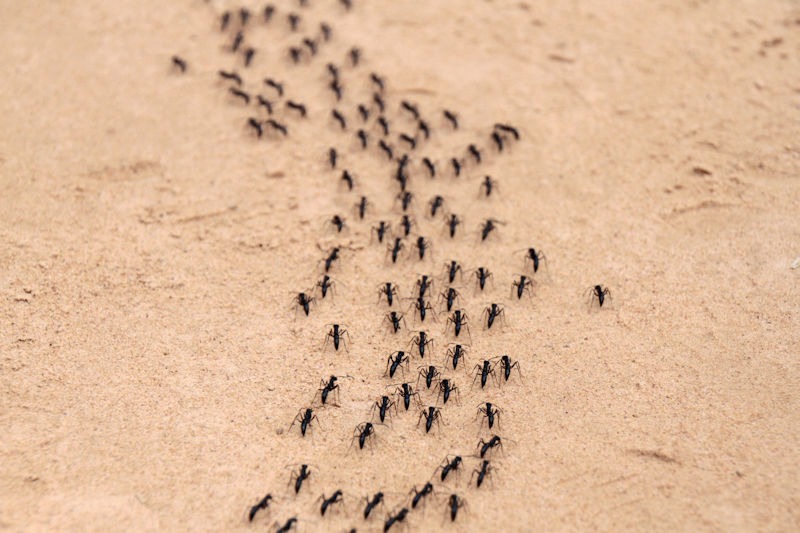In the realm of our domestic lives, the ant, a tiny and unassuming creature, often becomes an unwelcome guest, marching in lines across our kitchens and gardens. Understanding their behavior is not just a matter of curiosity but a practical way to keep them at bay. Here, we delve into the world of ants, exploring their intricate social structures and behaviors, the reasons they invade our homes, and effective strategies for managing their presence.
The Social Structure of Ants
Ants are remarkable for their complex social organization. Each colony operates as a single unit, with roles divided among workers, soldiers, and the queen. The workers, diligent and tireless, are the ones we most commonly encounter. They’re in charge of gathering food, maintaining the nest, and caring for the young. The soldiers protect the colony, while the queen’s sole purpose is to lay eggs, ensuring the colony’s future.
Why Ants Invade Our Homes
Understanding why ants enter human dwellings is crucial in managing them. Often, it’s a simple matter of survival – ants are in constant search for food and water. Our homes inadvertently become a haven, offering plentiful resources. Crumbs, spills, and even pet food can attract ants. Additionally, environmental conditions like excessive rain or drought can drive ants indoors in search of more hospitable conditions.
Ant Behavior: A Key to Effective Control
To manage ants effectively, one must think like an ant. Worker ants leave pheromone trails for others to follow to food sources. Interrupting these trails can be a critical step in ant control. Regular cleaning, especially of kitchen surfaces and floors, removes these invisible paths. However, cleaning alone isn’t enough. One must also address the root causes, like readily available food sources and easy entry points.
Ant Colony Dynamics: Understanding the Bigger Picture
Dealing with a few ants often means there’s a much larger colony nearby. Ant colonies can be massive, with thousands of individuals. Effective ant control methods must target the colony as a whole, not just the individuals. Baits that workers take back to the nest can be more effective than simply killing the ants you see.
Prevention: The First Line of Defense
Prevention is key in keeping ants out. Seal cracks and crevices in walls and foundations, as these can serve as entry points for ants. Keeping vegetation trimmed back from the house and avoiding piles of wood or debris near the home can also help. Inside, proper food storage is crucial. Ensure that food is sealed in containers and clean up spills and crumbs promptly.
When to Call in the Professionals
Sometimes, despite our best efforts, ant invasions can become overwhelming. In such cases, it may be time to call in professional pest control services. They can identify the specific type of ant, which is crucial for effective control, and they have access to more potent treatments that can address large colonies or particularly stubborn invasions.
The Ethical Consideration in Ant Control
In our efforts to control ants, it’s important to remember that they play a vital role in the ecosystem. They aerate the soil, control other pest populations, and recycle nutrients. Therefore, our control methods should be targeted and minimally invasive, aiming to keep ants out of our homes while respecting their role in nature.
Conclusion
Ants, though small, are complex and fascinating creatures. Understanding their behavior and biology is not only intriguing but also practical in managing their presence in our homes. By addressing the root causes of ant invasions, employing effective control methods, and practicing prevention, we can coexist with these tiny yet important members of our ecosystem. The science of ants, it turns out, is as much about understanding our own habits as it is about understanding theirs.

